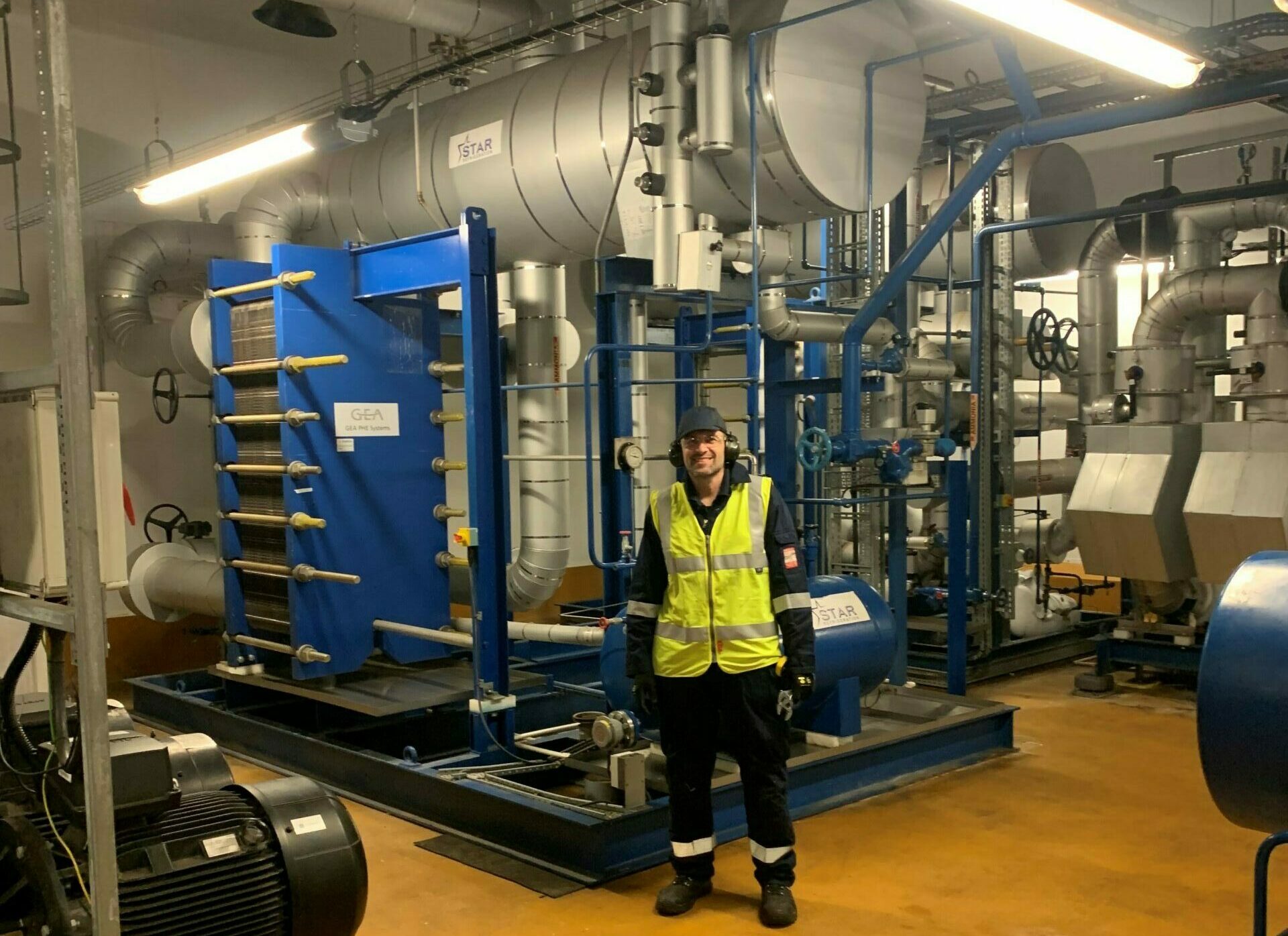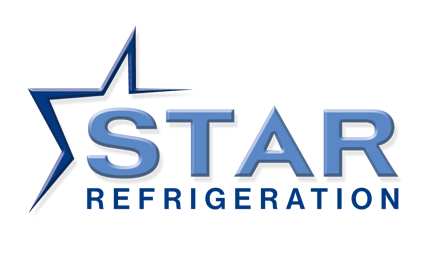
Richard Gahan, Refrigeration Engineer
Richard joined Star’s Fast Track Training programme After an 18 year career in the Royal Navy working in an operational role working alongside highly trained engineers in support of the UK’s Strategic Deterrent. As a result of this learned engineering knowledge, Richard completed the Fast Track programme in just 9 months, becoming a fully qualified industrial refrigeration engineer. His advice to anyone serving in the armed forces looking to move into a career in refrigeration engineering is to fully utilise the resources that the Armed Forces offer when you make that life-changing decision to ‘push-the-button’ and leave. Pick resettlement courses that are relevant to refrigeration, such as the Refrigeration, Air Conditioning and Heat Pump course.
Before working with Star, you served in the Armed Forces. Can you tell us a bit about your role?
An Electrical and Electronic Engineer with a commercial background and never afraid of a challenge, I joined the Royal Navy in 2002 to become a Submarine Weapon Engineer. After approximately 3 years, I emerged from a comprehensive training pipeline and began my first operational role working alongside other dedicated, professional and highly trained engineers in support of the UK’s Strategic Deterrent. Over the next 15 years, I alternated between sea-going and shore-based jobs, developing my engineering skills and gaining a broader understanding of military affairs.
When and why did you decide it was time for a career transition?
Having always enjoyed being ‘hands-on’, progression through my Naval Career required me to spend less time at sea, and I discovered I missed the day-to-day challenges of being involved in fault-finding, maintenance of complex systems, and the general hustle-and-bustle of on-the-ground engineering; so a change was required!
Being an engineer in the Royal Navy is very different from what you are now doing at Star Refrigeration – how did this career move come about?
Personally, I have found that Star and the Royal Navy are not so different. Both organisations have a strong focus on Health and Safety, including procedural compliance; entirely understandable when you consider the complex machinery and potentially hazardous outcomes if strict engineering principles and standards are not followed. Both also encourage and promote progression; offering comprehensive and well-structured training plans, and clearly documented routes for advancement. As a Fast Track Engineer, your previous engineering skills are recognised and you are actively encouraged and supported by a mentor programme to develop and transfer these skills into the world of refrigeration.
Had you always shown an interest in refrigeration?
On-board a warship, with no direct link to land support and services, you cannot underestimate the importance of refrigeration systems; partly for personnel habitability, but more importantly in ensuring the readiness of on-board systems. Whether they be sophisticated communications, sonar, radar equipment; or nuclear reactors and their safety critical support systems, keeping them operating within their design temperature parameters is paramount to ensuring the safety of the crew and ultimately achieving the mission.
What skills were you able to carry over from your role in the Royal Navy to your career with Star Refrigeration?
An inquisitive mind and desire to learn new technologies, attention to detail, commitment to getting a job completed right first time and to the best of my abilities, and working as part of team are all skills and qualities that have been readily transferrable to Star.
What were the biggest changes you noticed when you moved from the Royal Navy to Star Refrigeration?
Most noticeably, my work-home life balance has improved. Understandably in the Royal Navy, you are required to serve and travel to where the Navy is based; this sometimes means leaving your family behind and commuting back and forth each weekend, or sometimes not seeing them for considerable periods of time. Having done my research before joining Star, I knew that refrigeration can require some long working hours and commitment, as keeping on top of customer operations is key to success. However, even after a long day and sometimes a 2 hour commute, I relish the opportunity to return home each night and recharge my batteries, ready for another day.
The variation of work is another area that differs. Rarely is any day the same as the previous one, and the challenges of maintaining and servicing somewhere in the region of 20 different sites, means you can never sit back on your laurels and think that you know-it-all. If I spend another 20 years plus working in refrigeration, I still don’t think I’d be able to profess to this!
You started off as a fast-track trainee engineer and have rapidly progressed. How long did it take you to move onwards and upwards at Star?
Your rate of progression at Star as a Fast-Track Engineer is largely in your own hands. The training programme is based around a 12-18 month timeframe; but with dedication and a realisation that the more of your own time you can devote to training, the quicker you can achieve advancement, I believe anybody is capable of achieving this within 12 months. I was fortunate enough to complete a 3-week long Refrigeration, Air Conditioning, and Heat Pump training course as part of my resettlement time in leaving the Royal Navy. Although this provided limited practical experience and mostly focussed on the theory, I believe it gave me a fundamental grounding into refrigeration and enabled me to complete my Fast-Track time within 9 months, as I could hit-the-ground running when out on Site; referring to my old course notes (and the resources on the internet of course) on an evening to bowl out anything I hadn’t understood through the day.
What advice would you give to anyone who is switching from a career in the army/navy/airforces to one in a completely different industry such as refrigeration?
Star Refrigeration is a very ‘ex-Forces friendly’ company; they recognise the work-ethos and professionalism that are instilled into the Armed Forces from the moment we join up.
Fully utilise the resources that the Armed Forces offer when you make that life-changing decision to ‘push-the-button’ and leave. Pick resettlement courses that are relevant to refrigeration, such as the Refrigeration, Air Conditioning and Heat Pump course.
Do your research to determine if you are interested in refrigeration; there are tens of hundreds of channels on You Tube where people actively show you the world of refrigeration and air conditioning, and most are pretty unguarded in saying it ‘as-it-is’.
Do what I did and approach local firms and ask to complete work experience with them; this not only gives you a flavour for whether you think this life is for you, but it also adds credibility to your CV when trying to promote yourself as a Forces leaver with transferrable engineering skills and initiative.
It is not necessarily an easy industry to move into and the training pipeline is intense; but with a passion for hard-work and desire to succeed (qualities that you will already have from your time in the Armed Forces), you should find in a few years that you are earning a competitive salary and hopefully achieving an equivalent, or even better work-life balance than before.








